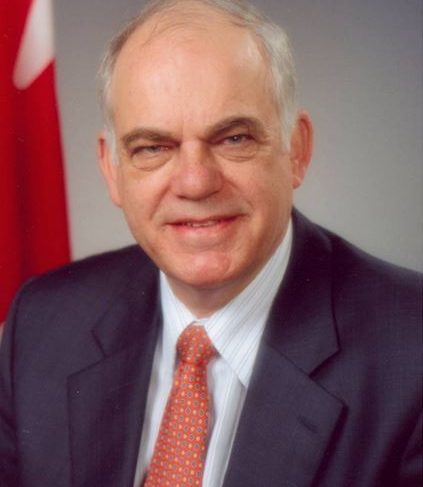
OTTAWA – A Senate committee turned to a former broadcast regulator for insight on how to address the challenges facing CBC/Radio-Canada in light of its loss of Hockey Night in Canada to Rogers Communications last year.
Appearing via video conference from Florida, former chair of the CRTC Konrad von Finckenstein told the Standing Senate Committee on Transportation and Communications what he believes could be done to improve the chances for success of Canada’s public broadcaster. He pointed to unloading the corporation’s vast over-the-air broadcast network, refocusing of the public broadcaster’s content as well as changing the governance structure and oversight of the CBC.
During his opening remarks, he noted the communications and broadcasting environment is rapidly, constantly, changing- and along with it, the needs of Canadians. “People are no longer interested in scheduled programs but want to have access to content they like, when they like it, in the form they prefer it,” he said. On top of this, the sector is now controlled by four giants: Bell Canada, Rogers Communications, Shaw Communications and Quebecor Media, along with a number of other strong competitors such as Telus, he added.
Von Finckenstein also highlighted the impact that over the top (OTT) television content producers such as Netflix are having on the landscape by giving people a new type of experience.
“In order to lessen the impact of the loss of Hockey Night in Canada, the CBC should examine seriously its strategies and find ways to show Canadians that the public broadcaster continues to hold an important place in the Canadian communications landscape,” he told the committee. “In my view such strategies should include… clearly stating that its objective is to not compete with private broadcasters but to fill the gaps left by them.”
The former head of the CRTC pointed to local programming as well as niche content “appealing to special Canadian tastes that are not being served by commercial broadcasters,” as a couple of ideas. He added the CBC should strive to become a trusted and objective voice for information programming and not act like the opposition to the government of the day.
Under questioning, von Finckenstein reiterated his position.
“They should try to find the gaps and produce (that type of programming),” he said noting that the BBC is a perfect example of a public broadcaster that produces a wide variety of content not found on commercial broadcasters. “If we spend all this money and we want to have a Canadian broadcasting system that reflects Canada, surely, the CBC should do exactly that: do the (type of programming) that we feel the (commercial broadcasters) don’t do. As we all know, commercial programming is very much dominated by American content.”
“They might want to consider abandoning over the air broadcasting except in remote and northern regions. After all, most Canadians get their television over satellite or cable.” – Konrad von Finckenstein
It`s not only about adding content either, some activities should be abandoned, he said. For example, children’s content is one area where the CBC should let the private broadcasters do their work. Getting rid of its massive and expensive over the air network infrastructure is also another step that could be taken to lessen the sting of lost Hockey Night in Canada advertising revenue.
“They might want to consider abandoning over the air broadcasting except in remote and northern regions. After all, most Canadians get their television over satellite or cable: 96% actually have access to cable. Why then waste all this effort to maintaining huge networks for over the air broadcasting that serves anywhere from 4% to 6% of the population,“ he said.
There is also a role for government in ensuring the CBC has the resources to fulfill its mandate. The most important being the provision of predictable and stable funding, something the federal government has so far refused to consider. Rather the public broadcaster has to operate on a year to year basis, wondering what it’s budget may be.
“The government for its part, I think if it wants to see the CBC thrive and flourish, should first off give it stable funding. No matter what the level, they need stable funding over periods longer than one year,” von Finckenstein said. “Secondly, the regulatory oversight should be lessened and certainly the corporate structure needs to be modernized.”
“CBC is also its own worst enemy. It has not articulated clearly and precisely how it intends to thrive in the new digital environment given its mandate.” – von Finckenstein
On this second point, he pointed to the litany of agencies to which CBC faces some sort of regulation including the CRTC, the Department of Canadian Heritage, the Treasury Board, commissioner of information and privacy as well as official languages. Not only that, if the CBC wants to try new ways of raising money, it needs approval from the Governor in Council (basically, the PMO).
“That being said however, CBC is also its own worst enemy. It has not articulated clearly and precisely how it intends to thrive in the new digital environment given its mandate,” said von Finckenstein.
Despite his criticism of the public broadcaster and suggestions on how to improve its situation, he argued that there is a role for the public broadcaster is today`s digital environment. “Public funds should be focused on producing, a) quality programs that aren’t likely to be offered by commercial broadcasters and b) objective information programming about events … so as to become a trusted source of news,” he said.


